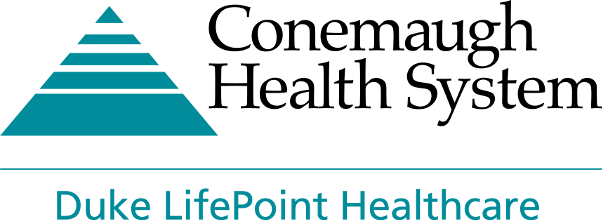Title IX
What is Title IX?
“No person in the United States shall, on the basis of sex, be excluded from participation in, be denied the benefits of, or be subjected to discrimination under any education program or activity receiving federal financial assistance.”
Title IX is a federal law that prohibits discrimination based on sex in educational programs or activities that receive federal financial assistance. All forms of sexual or gender-based harassment, including but not limited to, dating and domestic violence, stalking, and sexual assault are violations of Title IX. Title IX protects individuals of all genders and sexual orientations and applies to students, faculty, staff, independent contractors, campus visitors, and other participants in educational programs and activities.
TITLE IX POLICY
Title IX Resolution Process
Resource Material for Students and Staff
Commitment to Safety & Respect
Conemaugh is committed to fostering an environment free from sexual or gender-based harassment or misconduct. The School is also committed to providing support to those who may have been impacted by incidents of sexual or gender-based harassment or misconduct and may provide various resources and support services to individuals who have experienced one of these incidents. This website provides information on what to do if you or someone you know may have been impacted by any of these behaviors.
**Effective August 14, 2020, the School will implement the specific procedural requirements described here to address complaints of sexual harassment as defined under Title IX. These procedures apply equally to both parties, whether the party is a student, faculty, staff member or other individual participating or seeking to participate in an education program or activity. Parties to a matter are encouraged to contact the Title IX Coordinator directly with any questions or concerns regarding the application of these procedures or rights contained herein.
The regulations regarding Title IX of the Education Amendments of 1972 can be found on the Department of Justice website.
Who do I contact to file a report?
Individuals who feel the Title IX statute has been violated have the right to file a complaint or to refuse to file a complaint. Individuals who wish to learn more about their options may contact:
Title IX Coordinator, Patti Huber-Smith at 814-534-9485 or phubersm@conemaugh.org
To ensure compliance with Title IX and other federal and state civil rights laws, the School has designated a Title IX Coordinator to monitor compliance with Title IX and ensure that reports of sexual or gender-based harassment or misconduct are appropriately investigated and addressed. Any student, faculty, or staff member who has questions or concerns about their rights under Title IX or who believes that he or she has been the victim of sexual or gender-based harassment or misconduct, is encouraged to contact the Title IX Coordinator.
Conemaugh offers supportive measures even if a complainant does not wish to file a formal complaint and or initiate or participate in a grievance process.
Conemaugh's Title IX Policy prohibits intimidation, threats, coercion, and discrimination against any individual for the purpose of interfering with any right or privilege secured by Title IX, or because the individual has made a report or complaint, testified, assisted, or participated or refused to participate in any manner in an investigation, proceeding, or hearing.
Furthermore, the Title IX Coordinator will ensure that prompt corrective action is taken if either party experiences retaliation or if the complainant is subjected to further violations or if the original sanctions imposed on the Respondent are ineffective to protect the safety and well-being of the Complainant or other members of the School community. The Title IX Coordinator will also take reasonable steps to eliminate any hostile environment that has been created, such as overseeing the implementation of trainings and disseminating informational materials.
If you are in immediate danger, please call 9-1-1!
Examples of Unlawful Practices Prohibited Under Title IX Relating to Sexual Harassment:
- Sexual Harassment – unwelcome sexual advances, requests for sexual favors and other verbal or physical conduct of a sexual nature
- Sexual Misconduct – rape, sexual assault, sexual battery, sexual exploitation, sexual coercion, and any other form of non-consensual sexual activity (including when an individual is not in a condition to give legal consent)
- Stalking – repeatedly following, harassing, threatening or intimidating another individual using such methods including, but not limited to, telephone, mail, electronic communication, and social media
- Domestic Violence – in addition to physical abuse, also includes emotional, verbal and economic abuse
- Dating Violence – in addition to physical abuse, also includes emotional, verbal and economic abuse
- Retaliation – adverse academic, social, employment or other actions against anyone reporting a violation or participating in an investigation of any Title IX allegation
In addition to being considered discriminatory, sexual violence is criminal activity.
Under Title IX, any of the following conduct on the basis of sex constitutes sexual harassment:
- A school employee conditioning an educational benefit or service upon a person’s participation in unwelcome sexual conduct (often called “quid pro quo” harassment);
- Unwelcome conduct determined by a reasonable person to be so severe, pervasive, and objectively offensive that it effectively denies a person equal access to the school’s education program or activity; or
- Sexual assault, dating violence, domestic violence, or stalking (as those offenses are defined in the Clery Act, 20 U.S.C. § 1092(f), and the Violence Against Women Act, 34 U.S.C. § 12291(a)).
Student Bill of Rights
All students are entitled to the following:
- Protection from harm, aggression and violence
- freedom from corporal punishment of any kind, including physical or psychological harm from faculty, or any kind of sexual abuse
- a learning environment which ensures mental and physical health and wellness
- access to aid when their health or security of person is threatened or damaged in any way
Take an active role in increasing your safety as well as the safety of those around you!
